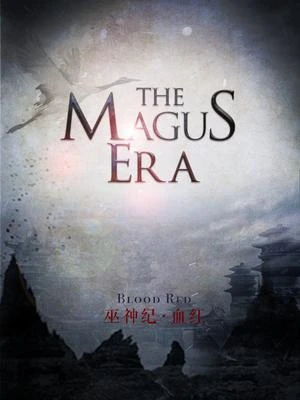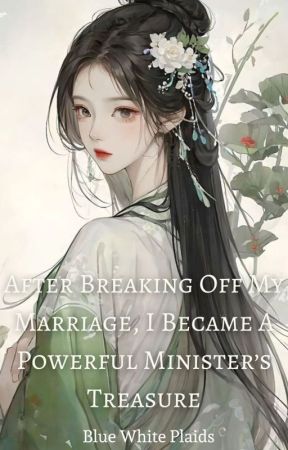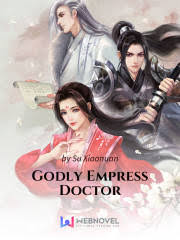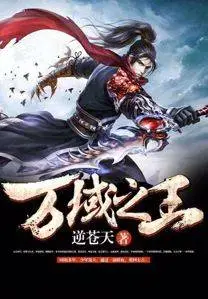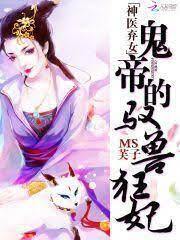The Story in 3 Sentences
Ji Hao, once known as Qing Long the strongest man on Earth, is reincarnated into a young boy within the fiercely tribal and magically charged world of the Fire Crow Clan in the Southern Wasteland .
He must navigate relentless threats from both internal clan rivals and external monstrous forces, leveraging a mysterious pact with an enigmatic entity in his spiritual space and the power of ancient dragon-phoenix blood to survive and ascend .
His journey evolves from tribal conflicts to cosmic battles, ultimately challenging divine entities and unraveling the secrets of the Magus Era itself in his quest for supremacy .
Why It Stands Out
1. Brutal World-Building Excellence
The novel’s setting is a stark, unforgiving ancient world that celebrates savage realism, drawing inspiration from Aztec and Maya rituals alongside tribal druidic magic, creating a unique blend of historical fantasy and brutal cultivation lore where slavery, sacrifice, and tribal warfare are not just background elements but core to the narrative’s tension and authenticity .
2. Protagonist as a Strategic Force
Ji Hao stands out by relying on cunning negotiations, strategic alliances, and tactical warfare rather than mere brute strength, with his reincarnated intellect allowing for clever political maneuvers and battlefield strategies that provide a refreshing contrast to typical xianxia protagonists who prioritize direct combat over cerebral engagement .
3. Evolving Magic System
The magic and cultivation system is deeply rooted in nature-based shamanistic rituals and elemental manipulation, evolving from simple tribal ceremonies to complex cosmic-level powers, offering a progressive learning curve that feels both ancient and innovative without relying on standard systemic cheats like modern game-like interfaces .
Characters That Leave a Mark
There’s Man Man – A fierce and loyal warrior from an allied tribe, whose incredible physical strength and straightforward demeanor provide both comic relief and unwavering support to Ji Hao, often serving as his protector in close combat and embodying the untamed spirit of their world.
You’ll meet Abba, Ji Hao’s father and leader of the Fire Crow Clan, who struggles to balance tribal traditions with the need for innovation, representing the old guard’s wisdom and the emotional anchor in Ji Hao’s often ruthless journey.
And Qian Tan? He’s the vengeful antagonist who relentlessly pursues Ji Hao, representing the persistent external threats that force the protagonist to constantly evolve and adapt his strategies for survival .
The Flaws Fans Debate
The translation and measurement inconsistencies, such as exaggerating distances and weights, frequently break immersion and lead to confusion regarding the scale of battles and power levels.
Repetitive plot structures with frequent ambushes and tribal conflicts often feel like filler content, stretching the narrative without advancing the core story or character development meaningfully.
The power progression suffers from inconsistency, where Ji Hao sometimes defeats stronger foes easily but struggles inexplicably against weaker opponents later, creating frustration over unclear progression rules and perceived plot armor for antagonists.
Must-Experience Arcs
Ch. 1–150: Southern Wasteland Survival – This arc establishes the brutal tribal world, introducing Ji Hao’s clan conflicts, initial magical awakening, and the harsh rituals of the Fire Crow Clan, setting the tone for the entire series .
Ch. 300–500: Midland Expeditions – Ji Hao ventures beyond his tribal borders, engaging in large-scale wars and forming alliances with other clans, showcasing the novel’s shift from local conflicts to broader political and military strategies.
Ch. 800–1000: Cosmic Confrontations – The narrative escalates to divine battles against god-like entities and ancient forces, revealing the cosmic scope of the Magus Era and Ji Hao’s role in reshaping the universe .
Killer Quotes
“Knowledge is power, and power is knowledge.”
“The strong rule, while the losers die or serve.”
“To conquer a tribe, you must first understand its rituals.”
Cultural Impact
The novel has sparked intense debates in online forums about its depiction of pre-historical tribalism and moral ambiguity, with fans either praising its realism or criticizing its excessive brutality.
It influenced a niche subset of xianxia enthusiasts who prefer nature-based magic systems over traditional cultivation, leading to increased interest in novels incorporating shamanistic and druidic elements.
Ji Hao’s character is often cited in translation communities as an example of a strategic, non-OP protagonist who relies on wits over sheer power, inspiring discussions about character design in fantasy genres .
Final Verdict
Start Here If You Want:
A raw and immersive journey into a pre-historical fantasy world where tribal rituals, savage warfare, and strategic cunning define progression rather than typical cultivation clichés.
Complex character dynamics with a protagonist who relies on intelligence and negotiation as much as combat, offering a refreshing break from one-dimensional overpowered heroes.
Large-scale narrative ambition that evolves from local tribal conflicts to cosmic battles, providing a sense of epic scope and world-building depth.
Study If You Love:
Exploring themes of cultural authenticity and historical inspiration in fantasy, such as the integration of Aztec-like sacrifices and druidic magic into a cohesive magical system.
Analyzing the use of repetitive structures and ambush scenarios as narrative devices to reflect the cyclical nature of tribal conflicts and perpetual warfare.
Examining translations and their challenges, including how measurement inconsistencies and cultural references impact reader immersion and thematic consistency.
Avoid If You Prefer:
Stories with clear moral frameworks and heroic protagonists, as this novel delves into gray areas of survival, slavery, and ruthless decision-making without moral judgment.
Consistent power progression systems without sudden, unexplained shifts in character strength or antagonist plot armor that defy established rules.
Light-hearted or romantic-focused narratives, as the emphasis here is on brutal realism, political maneuvering, and intense battlefield strategies over personal relationships.
